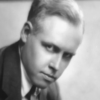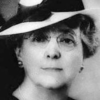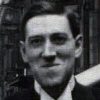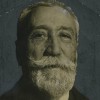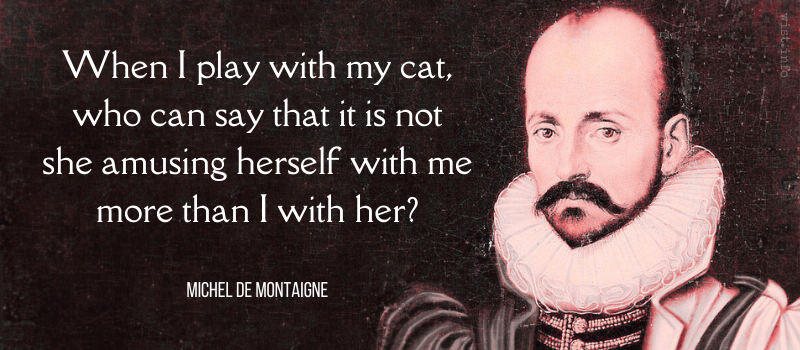Ye Venuses and Cupids mourn,
Ye whom the graces most adorn,
Come, and your tears of sorrow shed:
My Lesbia’s little bird is dead.[Lugete, o Veneres Cupidinesque
et quantum est hominum venustiorum!
passer mortuus est meae puellae,
passer, deliciae meae puellae.]Catullus (c. 84 BC – c. 54 BC) Latin poet [Gaius Valerius Catullus]
Carmina # 3 “Death of the Sparrow,” ll. 1-4 [tr. Bliss (1872)]
(Source)
(Source (Latin)). Alternate translations:
Mourn all ye Loves! ye Graces mourn!
My Lesbia's fav'rite sparrow's gone!
Ye men for wit, for taste, preferr'd,
Lament my girl's departed bird!
[tr. Nott (1795)]
Mourn, all ye loves and graces; mourn,
Ye wits, ye gallant, and ye gay;
Death from my fair her bird has torn,
Her much-loved Sparrow's snatch'd away.
[tr. Lamb (1821)]
Loves and Graces, mourn with me,
Mourn, fair youths, where'er ye be!
Dead my Lesbia's sparrow is,
Sparrow, that was all her bliss.
[tr. T. Martin (1861)]
Ye Graces! mourn, oh mourn!
Mourn, Cupids Venus-born!
And loveliest sons of earth, where'er ye are !
Dead is now my darling's sparrow --
Sparrow of my "winsome marrow,"
Than her very eyes, oh! dearer to her far.
[tr. Cranstoun (1867)]
Weep each heavenly Venus, all the Cupids,
Weep all men that have any grace about ye.
Dead the sparrow, in whom my love delighted,
The dear sparrow, in whom my love delighted.
[tr. Ellis (1871)]
Weep every Venus, and all Cupids wail,
And men whose gentler spirits still prevail.
Dead is the Sparrow of my girl, the joy,
Sparrow, my sweeting's most delicious toy.
[tr. Burton (1893)]
O mourn, you Loves and Cupids, and all men of gracious mind. Dead is the sparrow of my girl, sparrow, darling of my girl.
[tr. Smithers (1894)]
Mourn, all ye Loves, ye Loves and Cupids, mourn,
Make moan for heaviness, ye gallants bright,
For Lesbia's bird, my Lesbia weeps forlorn;
He's dead -- poor, pretty bird -- my love's delight!
[tr. Harman (1897)]
Mourn, ye Graces and Loves, and all you whom the Graces love. My lady's sparrow is dead, the sparrow my lady's pet.
[tr. Warre Cornish (1904)]
Mourn, all ye Graces, mourn, ye Sons of Love, and all whose hearts engender pity. The sparrow of my beloved is no more; that sparrow, the delight of my beloved.
[tr. Stuttaford (1912)]
Weep, weep, ye Loves and Cupids all,
And ilka Man o’ decent feelin’:
My lassie’s lost her wee, wee bird,
And that’s a loss, ye’ll ken, past healin’.
[tr. Davies (1912)]
Let Venus bow her head in grief,
And tears drown Cupid's eyes in sorrow,
And men of feeling everywhere
Forget to smile -- until tomorrow.
My lady's little bird lies dead,
The bird that was my lady's prize.
[tr. Stewart (1915)]
Weep, ye gods of love and pleasure,
Weep, all all ye of finer clay,
Weep, my darling's lost her treasure,
Mourn her sparrow passed away!
[tr. Symons-Jeune (1923)]
Mourn Loves and Graces all, and you
Of men the lovelier chosen few.
The sparrow of my love is dead,
The playmate of my love is sped.
[tr. MacNaghten (1925)]
Dress now in sorrow, O all
you shades of Venus,
and your little cupids weep.
My girl has lost her darling sparrow.
[tr. Gregory (1931)]
Lament, o graces of Venus, and Cupids,
and cry out loud, men beloved by Her graces.
Pass here, it's dead, meant so much to my girl, the
sparrow, the jewel that delighted my girl.
[tr. Zukofsky (1959)]
Mourn, oh Cupids and Venuses,
and whatever there is of rather pleasing men:
the sparrow of my girlfriend has died,
the sparrow, delight of my girl.
[tr. Sullvan (1997)]
Mourn, O you Loves and Cupids
and such of you as love beauty:
my girl’s sparrow is dead,
sparrow, the girl’s delight.
[tr. Kline (2001)]
Mourn, Cupids all, every Venus,
and whatever company still exists of caring people:
Sparrow lies dead, my own true sweegheart's sparrow.
[tr. Green (2005)]
Mourn, Oh Venuses and Cupids
And all men of finer feeling
The sparrow of my girl has died,
the sparrow, my lady's pet.
[tr. Wikibooks (2017)]
Mourn, O Venuses and Cupids
and however many there are of more charming people:
my girl's sparrow is dead --
the sparrow, delight of my girl.
[tr. Wikisource (2018)]
Quotations about:
pet
Note not all quotations have been tagged, so Search may find additional quotes on this topic.
Now a cat will not take an excursion merely because a man wants a walking companion. Walking is a human habit into which dogs readily fall but it is a distasteful form of exercise to a cat unless he has a purpose in view.
Carl Van Vechten (1880-1964) American writer and photographer
The Tiger in the House: A Cultural History of the Cat, ch. 2 (1920)
(Source)
If I had lived in that wild early world
When each day saw new monstrosities,
I would have fawned upon a giantess, curled
Voluptuous as a cat around her knees.[Du temps que la Nature en sa verve puissante
Concevait chaque jour des enfants monstrueux,
J’eusse aimé vivre auprès d’une jeune géante,
Comme aux pieds d’une reine un chat voluptueux.]Charles Baudelaire (1821-1867) French poet, essayist, art critic
Les Fleurs du Mal [The Flowers of Evil], # 19 “La Géante [The Giantess],” st. 1 (1857) [tr. Lerner (1999)]
(Source)
Also in in the 1861 ed. (# 19) and 1868 (# 20). (Source (French)). Alternate translations:
When Nature in her lavish lustiness
Bred day by day new, strange monstrosities,
Would I had lived with a young giantess
Like a warm cat who at a queen's feet lies.
[tr. Squire (1909)]
I should have loved -- erewhile when Heaven conceived
Each day, some child abnormal and obscene,
Beside a maiden giantess to have lived,
Like a luxurious cat at the feet of a queen
[tr. Scott (1909)]
From the time when Nature in her furious fancy
Conceived each day monstrosities obscene,
I had loved to live near a young Giantess of Necromancy,
Like a voluptuous cat before the knees of a Queen.
[tr. Symons (1913)]
In times of old when Nature in her glad excess
Brought forth such living marvels as no more are seen,
I should have loved to dwell with a young giantess,
Like a voluptuous cat about the feet of a queen.
[tr. Dillon (1936)]
When Nature once in lustful hot undress
Conceived gargantuan offspring, then would I
Have loved to live near a young giantess,
Like a voluptuous cat at a queen's feet.
[tr. Shapiro (1942)]
Of old when Nature, in her verve defiant,
Conceived each day some birth of monstrous mien,
I would have lived near some young female giant
Like a voluptuous cat beside a queen,
[tr. Campbell (1952)]
At the time when Nature with a lusty spirit
Was conceiving monstrous children each day,
I should have liked to live near a young giantess,
Like a voluptuous cat at the feet of a queen.
[tr. Aggeler (1954)]
In times when Nature, lusty to excess,
Bred monstrous children, would that I had been
Living beside a youthful giantess,
Like a voluptuous cat beside a queen
[tr. LeClercq (1958)]
In those times when Nature in powerful zest
Conceived each day monstrous children,
I would have loved to live near a young giantess,
A voluptuous cat at the feet of a queen.
[tr. Wagner (1974)]
Had I been there when primal Nature teemed
with monstrous progeny, I would have tried
to live beside some mammoth girl, the way
a cat will sprawl at the feet of a queen
[tr. Howard (1982)]
In olden days when Nature in her lusty exuberance daily conceived monstrous offspring, I would gladly have lived beside some youthful giantess, like a voluptuous cat at the feet of a queen.
[tr. Scarfe (1986)]
In times when madcap Nature in her verve
conceived each day a hatch of monstrous spawn,
I might have lived near some young giantess,
Like a voluptuous cat before a queen.
[tr. McGowan (1993)]
In the days when Nature, in her playful power,
conceived every day some new, monstrous children,
I should have liked to live with a young giantess,
like a voluptuous cat at the feet of a queen.
[tr. Clark (1995)]
Back when Nature in her zestful sway daily brought forth child monsters, I would like to have lived with a young giantess, like a voluptuous cat at the queen's feet.
[tr. Waldrop (2006)]
In those days when Nature's overwhelming Lust
Engendered infant-monsters day by day
I'd love to have lived with a young giantess.
Like a lazy cat at the foot of my queen I'd lay.
[tr. Underhill]
A man who owns a dog is, in every sense of the word, its master; the term expresses accurately their mutual relations. But it is ridiculous when applied to the limited possession of a cat. I am certainly not Agrippina’s mistress, and the assumption of authority on my part would be a mere empty dignity, like those swelling titles which afford such innocent delight to the Freemasons of our severe republic. If I call Agrippina, she does not come; if I tell her to go away, she remains where she is; if I try to persuade her to show off her one or two little accomplishments, she refuses, with courteous but unswerving decision.
People who hate cats tend to be proud of the fact, and brag about it as if it proved something honest and straightforward in their natures. Nobody brags about hating dogs. To hate dogs would be meanspirited and peculiarly unpatriotic; dogs are a very American concept, fraternal, hearty, and unpretentious, while cats are inscrutable like the wily Oriental and elitist like the European esthete. In advertising cats turn up selling perfume (wily) and expensive rugs and furniture (elitist) , while dogs sell such solid family values as station wagons, life insurance, and sporting goods.
Near this spot
are deposited the Remains of one
who possessed Beauty without Vanity,
Strength without Insolence,
Courage without Ferocity,
and all the Virtues of Man without his Vices.
This Praise, which would be unmeaning Flattery
if inscribed over human Ashes,
is but a just tribute to the Memory of
BOATSWAIN, a DOGGeorge Gordon, Lord Byron (1788-1824) English poet
“Epitaph to a Dog” (1808)
(Source)
Carved on the headstone over Boatswain's grave at Newstead Abbey, the family's ancestral home. Byron acquired the dog at age fifteen; Boatswain died of rabies, an endemic disease in England at the time, five years later. Byron wanted to be buried beside him, but the sale of the property made that impossible.
While the rest of the poem is considered Byron's, these first lines may have been written by his friend, John Cam Hobhouse. More discussion here.
We miss so much out of life if we don’t love. The more we love the richer life is — even if it is only some little furry or feathery pet.
People who wish to salute the free and independent side of their evolutionary character acquire cats. People who wish to pay homage to their servile and salivating roots own dogs.
Anna Quindlen (b. 1953) American journalist, novelist
“Mr. Smith Goes to Heaven,” New York Times (7 Apr 1991)
(Source)
Part of an obituary for her dog, Jason Oliver C. Smith. Reprinted in Thinking Out Loud (1993).
The cat does not merely experience contentment, he exudes it. You cannot be in the presence of a contented cat and not have some of that contentment rub off on you. Which surely is a good part of the reason we love cats so.
Jeffrey Moussaieff Masson (b. 1941) American author
The Nine Emotional Lives of Cats: A Journey Into the Feline Heart, ch. 3 (2002)
(Source)
We own a dog — he is with us as a slave and inferior because we wish him to be. But we entertain a cat — he adorns our hearth as a guest, fellow-lodger, and equal because he wishes to be there. It is no compliment to be the stupidly idolised master of a dog whose instinct it is to idolise, but it is a very distinct tribute to be chosen as the friend and confidant of a philosophic cat who is wholly his own master and could easily choose another companion if he found such an one more agreeable and interesting.
H. P. Lovecraft (1890-1937) American fabulist [Howard Phillips Lovecraft]
“Cats and Dogs” (23 Nov 1926), Leaves (Summer 1937)
(Source)
Reprinted as "Something about Cats" in Something About Cats: And Other Pieces (1949) [ed. Derleth].
The domestic cat is a contradiction. No animal has developed such an intimate relationship with mankind, while at the same time demanding and getting such independence of movement and action.
Desmond Morris (b. 1928) English zoologist, ethologist, author
Catwatching, Introduction (1986)
(Source)
Cats are narcissistic. Their needs come before ours. They don’t understand the word No. They carry themselves with that aloof, arrogant sense of perpetual entitlement, they will jump up and insinuate themselves wherever they please — on your lap, on your newspaper, on your computer keyboard–and they really couldn’t care less how their behavior affects the people in their lives. I’ve had boyfriends like this; who needs such behavior in a housepet?
Caroline Knapp (1959-2002) American writer and columnist
“Lucille Versus Stumpy: The (Real) Truth About Cats and Dogs” (1998), The Merry Recluse (2004)
A rejoinder to her friend, Ron Rosenbaum, "Stumpy Versus Lucille: The Great Pet Debate," New York Observer (8 Aug 1998), where he extolled the virtues of cats over dogs.
After we do the washing-up, I get to spend the rest of the evening reading FAQs on cat maintenance on the web. It takes about half an hour to come to the unwelcome realization that they’re almost as complex as home-brew gaming PCs, and have even more failure modes. (When your gaming PC malfunctions it doesn’t stealthily dump core in your shoes.)
I will never laugh at anyone for grieving over a loved beast. I think God wants us to love Him more, not to love creatures (even animals) less. We love everything in one way too much (i.e., at the expense of our love for Him), but in another way we love everything too little. No person, animal, flower, or even pebble has ever been loved too much — i.e., more than every one of God’s works deserves.
C. S. Lewis (1898-1963) English writer, literary scholar, lay theologian [Clive Staples Lewis]
Letter to Mary Willis Shelburne (18 Aug 1956)
(Source)
I am sorry to hear of the little dog’s death. The animal creation is a strange mystery. We can make some attempt to understand human suffering: but the sufferings of animals from the beginning of the world till now (inflicted not only by us but by one another) — what is one to think? And again, how strange that God brings us into such intimate relations with creatures of whose real purpose and destiny we remain forever ignorant. We know to some degree what angels and men are for. But what is a flea for, or a wild dog?
Munny will buy a pretty good dog, but it wont buy the wag ov hiz tale.
[Money will buy a pretty good dog, but it won’t buy the wag of his tail.]Josh Billings (1818-1885) American humorist, aphorist [pseud. of Henry Wheeler Shaw]
Josh Billings’ Trump Kards (1874)
(Source)
Love me, love my dog.
John Heywood (1497?-1580?) English playwright and epigrammist
Proverbes, Part 2, ch. 9 (1546)
(Source)
Earlier noted as a common proverb by Bernard of Clairvaux in the 11th Century: "Qui me amat, amet et canem meum [Who loves me will love my dog also] in his First Sermon on the Feast of St Michael.
When I play with my cat, who can say that it is not she amusing herself with me more than I with her?
[Quand je me jouë à ma chatte, qui sçait, si elle passe son temps de moy plus que je ne fay d’elle?]
Michel de Montaigne (1533-1592) French essayist
“Apology for Raymond Sebond [Apologie de Raimond de Sebonde]” (1588–1592), Essays, Book 2, ch. 12 (1595) [tr. Ives (1925)]
(Source)
(Source (French)). Alternate translations:
When I am playing with my Cat, who knowes whether she have more sporte in dallying with me, then I have in gaming with hir?
[tr. Florio (1603)]
When I play with my cat, who knows whether puss is not more diverted with me than I am with puss?
[tr. Cotton (1686)]
When I play with my cat who knows whether I do not make her more sport than she makes me?
[tr. Cotton/Hazlitt (1877)]
When I play with my cat, who knows if I am not a pastime to her more than she is to me.
[tr. Frame (1943)]
When I play with my cat, how do I know that she is not passing time with me rather than I with her?
[tr. Screech (1987)]
The great pleasure of a dog is that you may make a fool of yourself with him and not only will he not scold you, but he will make a fool of himself, too.
Samuel Butler (1835-1902) English novelist, satirist, scholar
The Note-Books of Samuel Butler, “Dogs” (1912)
(Source)


